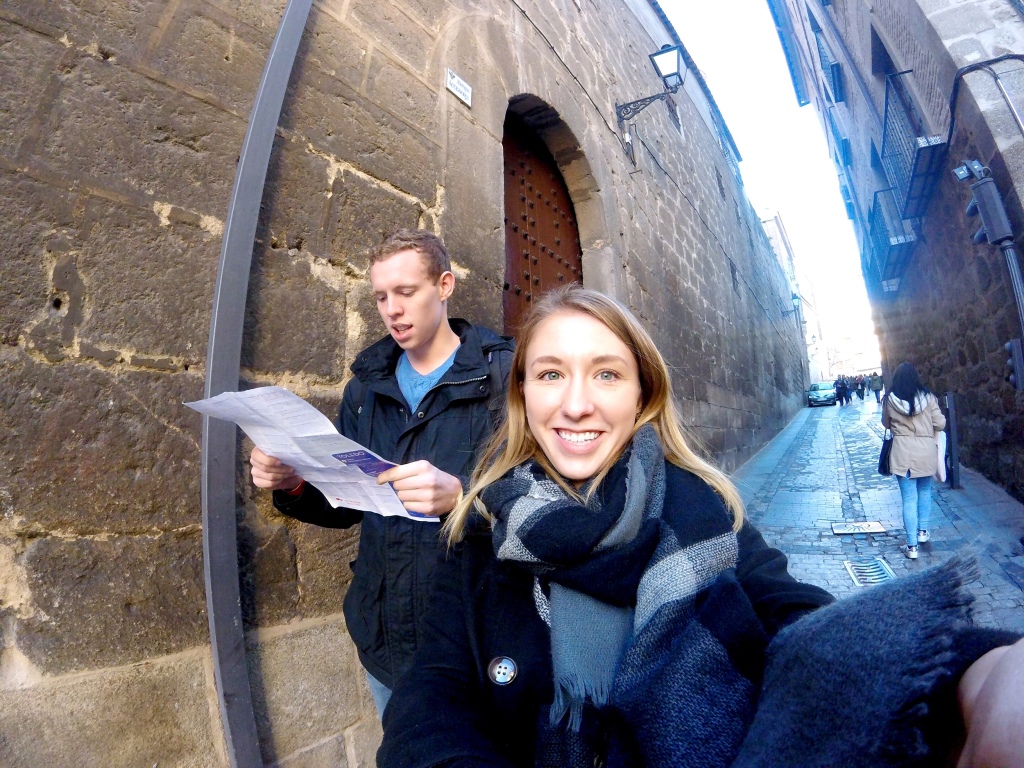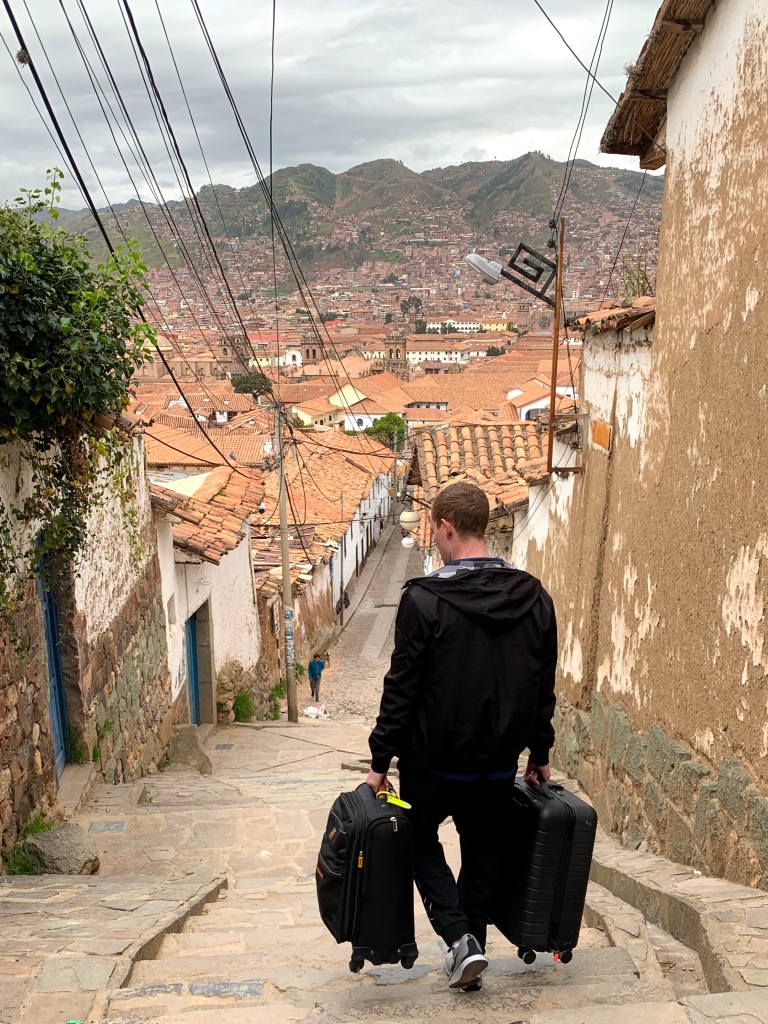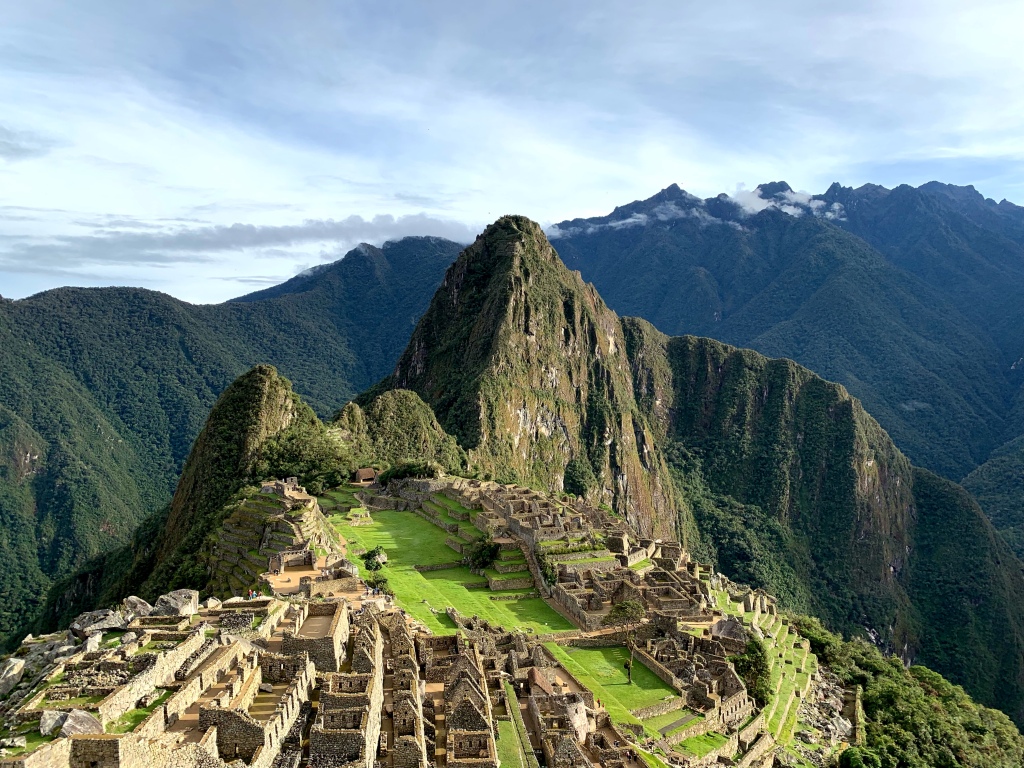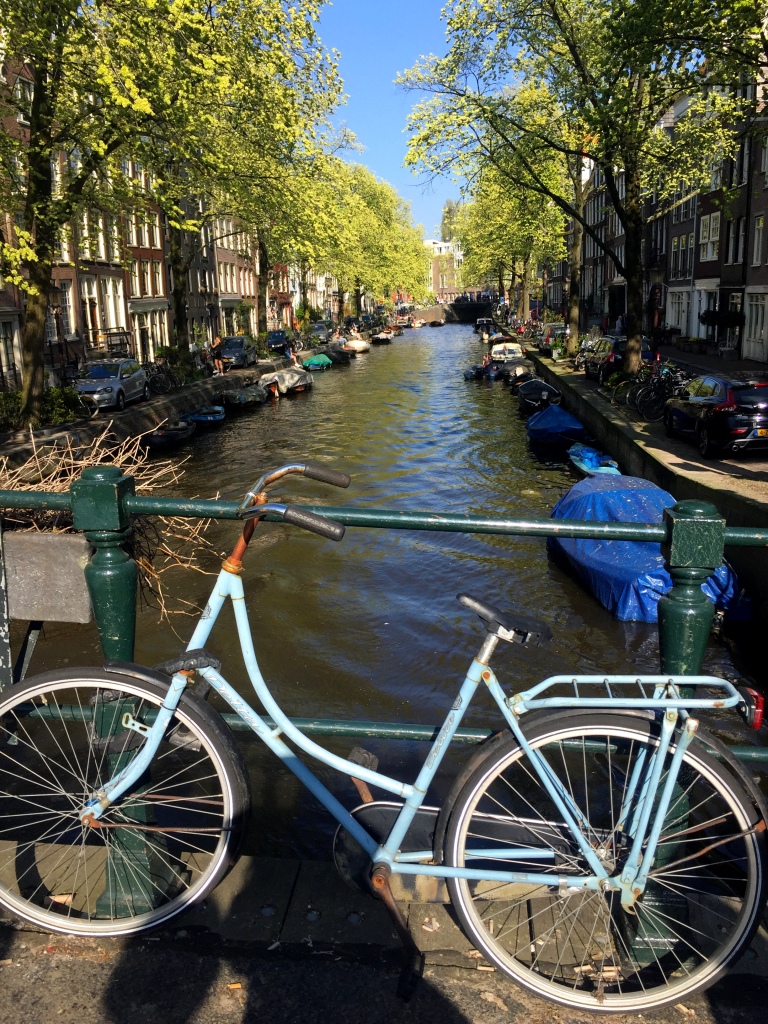Check out our best travel tips before you leave on your next adventure!
Plan an itinerary
I’ll be the first to admit that making a travel itinerary can sometimes be time consuming – but it does save you a big headache when you are actually on vacation! For example, you’ll want to do some research to determine where you want to go and the things that are most important for you to see. If planning isn’t your thing – I recommend looking into a group guided tour or a travel agent who can plan for you.
Purchase tickets in advance
With all that planning, you’re also going to want to purchase any tickets you can in advance. It’s important to know what your top priority attractions are and start there. This will save you the time of waiting in line, as well as the sadness if a sight you wanted to see is sold out of tickets.
Look into international cell phone plan
Often times, using your provider in the US to get a limited international plan can be expensive. (We have Verizon and they charge $10 a day for using your phone outside of the country). Instead, we recommend looking into purchasing a Sim Card abroad to use. We did this in Ireland through a company called Three. It cost 20 euros for unlimited data for a month! Although, we were only there for 10 days – it was so worth it! Plus, local cell phone companies often have better service than US ones will abroad. There’s nothing like the confidence of being able to look up directions or communicate with family back home while on the go!
Download maps offline
If purchasing a cell phone plan isn’t in your budget, or something you don’t feel confident doing – you can always rely on hotel or Airbnb wifi to get you through. Before you leave home though, we recommend downloading the city map offline to your phone. This will allow you to find your way around without using cellular data. For more information on how to do this, check out this tutorial here: How to Download Google Maps for Offline Use.
Bring medicine
This one may feel obvious, but separate from any daily medication you may need to take, we also recommend packing a few other types as well. We never leave for a trip without allergy medicine, anti-diarrhea medicine and pain medicine. We have a small carrying case where we put these items, as well as antacid, bandaids and floss. This pouch is with us in our backpack so we are never caught in a situation where we didn’t have these items. It’s much nicer to have products you are familiar with than have to navigate a foreign pharmacy.
Pack appropriate shoes
Again, this one feels like obvious advice but let’s dive in. On a big trip, you’ll most likely do a lot of walking. Sneakers or comfortable flats will be your best friend! If you plan to visit an area that gets a lot of rain or snow, you may also want to pack boots or waterproof shoes. Finally – if you are planning a beach vacation abroad, we recommend bringing water shoes! A lot of beaches in Europe are rocky and can be uncomfortable to walk on without proper shoes.
Weigh your suitcase
Nothing is worse than showing up to the airport and finding out you’re going to be charged extra for the weight of your suitcase. We always like to look at the airlines guidelines for size and weight before we leave. Even some airlines are restricting the weight of carry-ons now, so it’s good to be informed. You can purchase a scale to weigh your bag, or you can always do the old fashioned weigh yourself and then weigh yourself holding your bag trick! Better to be able to shuffle things around in your bag in the comfort of your home than at the airport.
Exchange money
About 2-3 weeks before leaving, you’ll want to exchange the US dollar for the currency you’ll need abroad. You can do this at a local bank or Triple AAA (if you’re a member). We recommend avoiding airport currency exchanges at all costs, as they will up-charge you. If you do not have time before you leave, you’ll get a fairer rate by using an ATM once you get into the city you’re traveling to. You can also ask your guide, hotel concierge, etc. for tips on where the best exchange rate can be found!
Call your bank / credit cards
Often times, banks or credits cards will have international fees associated with them, so it’s good to figure out which ones do and which ones don’t. You’ll also want to notify your bank and credit card companies that you’ll be traveling outside the country between specific dates so they are aware and do not lock you out of your account for fraud. If you discover one of your cards does not charge foreign transaction fees, we recommend using that one the most. Keep in mind that MasterCard and VISA are the two most widely accepted credit cards abroad. In some places, American Express is not as widely used so always bring a back up. While having a card to use is important, we also always recommend having local currency on hand for things like tipping, souvenirs or smaller purchases. Some places have a minimum to use a card, so if you want something simple like gelato – you’ll need some cash!
Make a copy of your passport
It’s hard to get anywhere without a passport, so in the horrible case it gets stolen or you lose it, you’ll want to have a copy to show the US Embassy. I always take a photo of my passport (the page with the photo and number), and occasionally print out a hard copy to keep on me as well. This is in preparation for worst case scenario and ideally will never have to be used.
Research necessary medical requirements
Some places in the world require specific vaccines or have recommendations to prepare for a trip there. The CDC’s website is one of the best resources for finding out this information. If you are still unsure, it’s always best to consult with your primary care physician before leaving. Check out the CDC’s website here: Traveler’s Health.
Get travel insurance
Life is unpredictable! As much as we hope nothing will go wrong before or during a trip, there is always the chance they may. Some credit cards provide travel insurance, so I always recommend starting there and researching what you may already have and not be aware of! If you don’t have travel insurance through your credit card, there are a few companies that can provide short term insurance for a trip (listed below). If you’re going with a group guided tour – always inquire about their insurance packages.
Enroll in STEP
As a US citizen, it’s always helpful to enroll in STEP (Smart Traveler Enrollment Program). You can update when you will be out of the country and where you will be. This helps the US government locate citizens in the case of an international emergency. You can also get security updates regarding the places you’re traveling to as well. For more information, check out the website here: STEP.
Learn phrases in the native language

Finally, it’s always helpful to learn a few simple phrases in the native language of the country you are traveling to. Things such as: hello, good morning and thank you, can go a long way. Duolingo has a free app you can download on your phone to help you practice if you’re feeling ambitious!

We hope this article helps you prepare for your next adventure.
Cheers, Amanda
If you enjoyed this post, you may also like:
- Travel Tips: On the Go
- The Not-So-Glamorous Side of Travel
- Satisfy your travel bug without leaving your home


















